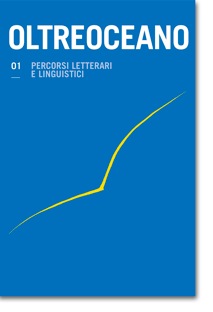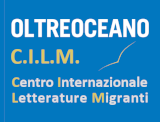Pluriversi e relazioni di partnership in The Wagtail and the Rainbow, Una storia tradizionale aborigena
Parole chiave:
conoscenza mitologica aborigena, linguaggio simbolico, The Wagtail and the RainbowAbstract
La storia The Wagtail and the Rainbow dimostra come la conoscenza mitologica aborigena sia ancora attuale e presente e viva, se si è in grado di leggerne il linguaggio simbolico come importante strumento di armonizzazione.
Multiverses and Partnership Relations in The Wagtail and the Rainbow, a Traditional Aboriginal Story
The story The Wagtail and the Rainbow shows us how Aboriginal mythological knowledge is still alive and interesting in today’s world if we read its symbolic language as an important tool for harmonization.
Bibliografia citata
Downloads
Riferimenti bibliografici
Angus, S. (1975): The Mystery-Religions. New York: Dover.
Campbell, J. (1959): The Masks of God: Primitive Mythology. New York: Viking.
Campbell, J. (1983): The Way of the Animal Powers. San Francisco: Harper & Row.
Capra, F. (1983): The Tao of Physics. London: Harper Collins.
Capra, F. (1996): The Web of Life. New York: Anchor / Doubleday.
Coleridge, S. T. (1957-1990): The Notebooks of Samuel Taylor Coleridge. K. Coburn, (Ed.), 4 volumi doppi (Texts and Notes), 1794-1826. Cambridge: Princeton University Press and Routledge.
Eisler, R. (1987): The Chalice and the Blade: Our History, Our Future. San Francisco: Harper and Row.
Eisler, R. (1995): Sacred Pleasure, Sex, Myth, and the Politics of the Body: New Paths to Power and Love. San Francisco: Harper and Row.
Eisler, R., Loye, D. &
Norgaard, K. (1995): Women, Men and the Global Quality of Life. PacificGrove: Centre for Partnership Studies.
Eisler, R. & Loye, D. (1998): The Partnership Way: New Tools for Living and Learning. Revised Edition. Brandon: Holistic Education Press.
Eisler, R. & Loye, D. (1975): Creativity, Society and the Hidden Subtext of Gender. Online essay, pp. 1-28. Recuperato da http://www.ciis.edu/faculty/articles/montuori/creativitygender.pdf
Eliade, M. (1958): Rites and Symbols of Initiation: The Mysteries of Birth and Rebirth. New York: Harper & Row.
Guénon, R. (1990): Simboli della Scienza Sacra,1962. Milano: Adelphi.
Langloh Parker, K. (1898): Australian Legendary Tales: Folklore of the Noongahburrahs as Told to the Piccannies. Introd. di A. Lang. London: David Butt, Melbourne: Melville, Mullen & Slade.
Langloh Parker, K. (1905): The Euahlay Tribe: A Study of Aboriginal Life in Australia. London: Constable.
Langloh Parker, K. (1896): More Australian Legendary Tales, Collected from various tribes by Katie Langloh Parker. London: David Butt, Melbourne: Melville, Mullen & Slade.
Langloh Parker, K. (1918): Woggheeguy: Australian Aboriginal Legends. Adelaide: Hassel.
Langloh Parker, K. (1993): Wise Women of the Dreamtime. In J. Lambert (Ed.), Aboriginal Tales of the Ancestral Powers. Rochester: Vermont.
Laszlo, E. (1978): Obiettivi per l’umanità,1977. Milano: Mondadori.
Laszlo, E. (1998): Terzo Millennio: la sfida e la visione,1997. Milano: Corbaccio.
Morin, E. (2000): La testa ben fatta, 1999. Milano: Raffaello Cortina.
Morin, E. (2001): La natura della natura, 1977. Milano: Raffaello Cortina.
Morin, E. (2004): La vita della vita, 1980. Milano: Raffaello Cortina.
Thich, N. H. (1993): La pace è ogni passo, 1991. Roma: Ubaldini.
Watts, A. (1954): Myth and Ritual and Christianity. New York: Grove.
Walker, B. (1983): The Woman’s Encyclopaedia of Myths and Secrets. San Francisco: Harper &Row.
Walker, B. (1988): The Woman’s Dictionary of Symbols and Sacred Objects. San Francisco: Harper & Row.
Zolla, E. (2006): Conoscenza religiosa. Scritti 1969-1983. G. Marchianò (Ed.). Roma: Edizioni di Storia e Letteratura.
Downloads
Pubblicato
Come citare
Fascicolo
Sezione
Licenza

Questo lavoro è fornito con la licenza Creative Commons Attribuzione - Non commerciale - Condividi allo stesso modo 4.0 Internazionale.
Gli autori si impegnano a rispettare le seguenti condizioni, che s’intendono accettate al momento della sottomissione per la stampa dei propri contributi.
L’invio di un testo implica che esso sia inedito e non in attesa di essere pubblicato altrove.Gli autori si impegnano a rispettare le seguenti condizioni, che s’intendono accettate al momento della sottomissione per la stampa dei propri contributi.
- Qualora venga accettato, l’autore conferisce all’editore il diritto di pubblicarlo e distribuirlo sia in forma cartacea che nell’edizione elettronica in rete. Gli articoli pubblicati saranno scaricabili e resi disponibili in open access.
- Purché segnali correttamente che la prima pubblicazione è avvenuta sulla rivista «Oltreoceano. Rivista sulle migrazioni», l’autore ha facoltà di: a) riprodurre l’articolo in estratti separati o raccolti in volume; b) pubblicare l’articolo nel proprio sito personale o in quello di corsi di insegnamento purché si tratti di siti di natura non commerciale; c) depositare l’articolo in archivi online di carattere non commerciale, legati all’istituzione di appartenenza o come parte di progetti di diffusione non commerciale e open access dei lavori scientifici.
Non è consentita l’utilizzazione dei contributi da parte di terzi, per fini commerciali o comunque non autorizzati. L’editore declina ogni responsabilità sull’uso non autorizzato del materiale pubblicato sulla rivista.













